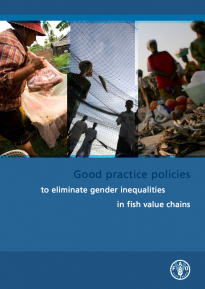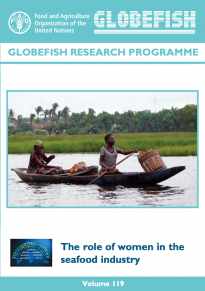Equitable Social and Gender Environment for Handling After Harvest
Both men and women are involved in harvesting and handling of fish produced by aquaculture. It is estimated that 70% of those involved in aquaculture in Asia are women.
The quality of fish after harvest also has important implications for food loss and waste (FLW) and value throughout the remainder of the value chain. Value chains also include processors and marketers of seafood and workers, many of whom are women. Fish farms that supply fish to many developed country value chains that include post harvest activities undertaken by women such as processing and trading. Hence, what happens in terms of harvesting and handling at farm level will have implications for FLW for both men and women further down the value chain.
Key Publications
Good Practice Policies to Eliminate Gender Inequalities in Fish Value Chains This publication highlights key gender inequalities in fisheries and aquaculture value chains that lead to underperformance by women, and proposes good practice policies that can influence increases in production and processing of high-quality fish. |
| |
The Role of Women in the Seafood Industry This report aims to increase awareness of the value women bring to the seafood industry, and to encourage business leaders and policymakers to consider women when developing a new project or a policy. | ||
Handling, Processing, and Marketing of Aquaculture Products This paper describes the role of women in the handling, processing, and marketing of aquaculture products, and relies heavily on studies of women in processing and marketing in general, and of fish in particular. |
More Resources
More Resources
27 February 2024
31 October 2023














